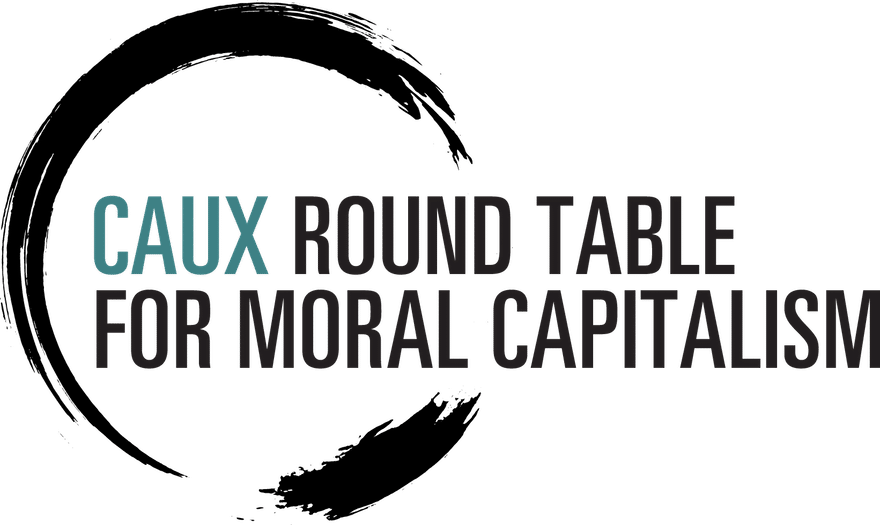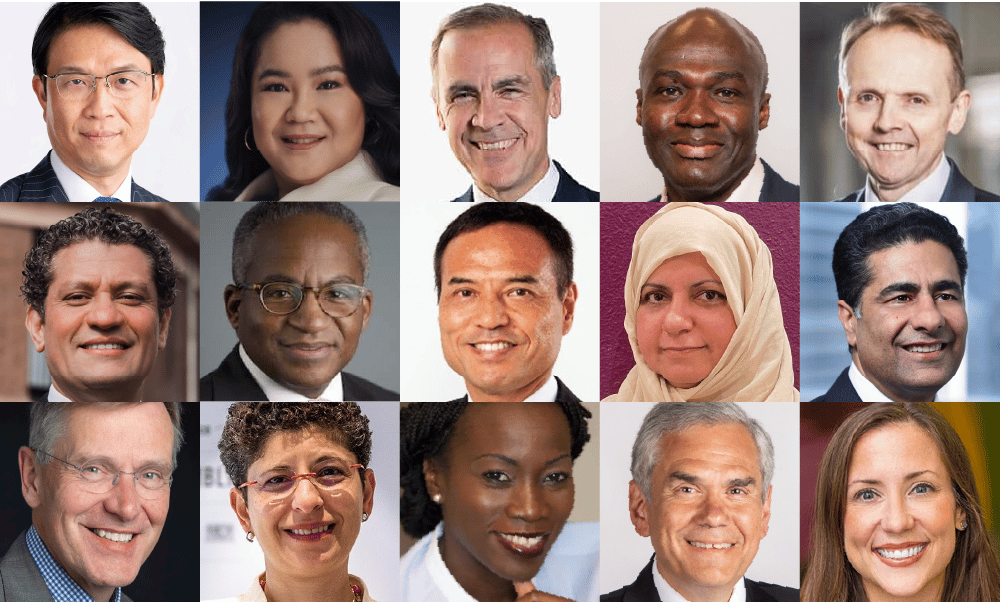Who We Are
The Caux Round Table for Moral Capitalism (CRT) is an international network of principled
business leaders and professionals working to promote a moral capitalism. The CRT advocates
implementation of its Principles for Business through which principled capitalism can flourish
and sustainable and socially responsible prosperity can become the foundation for a fair, free, and
transparent global society.
The CRT seeks to be ahead of the learning curve as how to optimize the manifold benefits of
capitalism for the well-being of humanity. The stakeholder ethic articulated in the 1994 CRT
Principles for Business in 2019 were affirmed by the World Economic Forum and the US
Business Roundtable. The CRT’s Principles for Business are explained in the book Moral
Capitalism.
The CRT asserts that Moral Capitalism is more than public reporting of downstream externalities
and impacts of firm business models, more than concern for the environment and global
warming, and more than providing public goods via private market transactions. Moral
Capitalism is management of responsible wealth creation. Moral Capitalism makes explicit the
role of the Moral Sense in business decision-making. It is “self-interest considered upon the
whole”, a systems approach to sustainable firm prosperity in sustainable societies.
The CRT has designed a more comprehensive theory of the firm which incorporates the
application of social and human capitals in addition to financial capitals. When returns are paid
by the firm for use of these new, intangible, forms of capital, the firm places enterprise value on
stakeholders.
Dialogues with religious leaders and academics has confirmed that the CRT Principles for
Business are compatible with all of humanity’s major wisdom traditions.
Understanding that modern civilization is an interdependent partnership among the three sectors
of business, government, and civil society, the CRT formulated ethical principles for government
and civil society institutions to provide for social and political environments which would permit
a Moral Capitalism to flourish.
At the company level, the CRT advocates implementation of its Principles for Business as the
cornerstone of principled business leadership. The CRT Principles apply fundamental ethical
norms to business decision-making. A specially designed process for incorporating the Principles
into the culture of a corporation is available for companies to use. This assessment tool permits
assessment of future returns and risks permitting more reliable valuations of present company
worth. Ethical training for corporate boards of directors and new ethics curriculum for business
schools have been designed and implemented.
Recently, the CRT has proposed a re-conceptualization of “capital” to include intangible assets
such as social and human capitals. The CRT has in tandem proposed a modernization of
valuation methodology to incorporate consideration of social, human and natural capitals in
financial analysis, planning and reporting.
The principal methodology employed by the CRT is a unique open-ended, round table
facilitation of discernment, an invitation to honest conversations created by Initiatives for
Change (formerly Moral Re-Armament) at Mountain House, Caux, Switzerland.
Brief History
The CRT was founded in 1986 by Frederick Phillips, former President of Philips Electronics and
Olivier Giscard d’Estaing, former Vice-Chairman of INSEAD, as a means of reducing escalating
trade tensions.
At the urging of Ryuzaburo Kaku, then Chairman of Canon, Inc., the CRT began focusing
attention on the importance of global corporate responsibility in reducing social and economic
threats to world peace and stability.
The CRT Principles for Business were formally launched in 1994 and presented at the U.N.’s
World Summit on Social Development in 1995. The CRT Principles for Business articulate a
comprehensive set of ethical norms for businesses operating internationally and across multiple
cultures. The CRT Principles for Business emerged from a series of dialogues during the late
1980s and early 1990s. They are the product of collaboration among executives from the U.S.,
Europe and Japan and were fashioned, in part, from a document called “The Minnesota
Principles.”
The CRT Principles for Business have been published in twelve languages, reprinted in
numerous textbooks and articles and utilized in business school curricula worldwide. The
Principles are recognized by many as the most comprehensive statement of responsible business
practice ever formulated by business leaders, for business leaders.
Subsequently, the CRT through its round tables published ethical principles for Moral
Government, ethical principles for the ownership of wealth, ethical principles for civil society
institutions, a personal commitment for business leaders to promote the Sustainable
Development Goals, a statement on the moral vision of the Abrahamic religions, a joint
statement on Qur’anic support for Catholic social thought, a statement on the ethics of
immigration and resettlement, a report on the covenants of the Prophet Muhammad to respect
and protect Christian communities.
The CRT publishes a monthly newsletter, Pegasus.
Chairs of the Caux Round Table have been Winston Wallin, Chairman and CEO of Medtronic;
George Vojta, Vice-Chairman of Banker’s Trust, Lord Daniel Brennan, QC; Noel Purcell of
Westpac Bank, Sydney, Robert MacGregor. The current Chair is Brad Anderson, former CEO
and Vice Chairman of Best Buy, Inc.
Purpose
The Caux Round Table for Moral Capitalism is an international network of experienced business leaders who work with business and political leaders to design the intellectual strategies, management tools, and practices to strengthen private enterprise and public governance to improve our global community. We make the case for Moral Capitalism.


